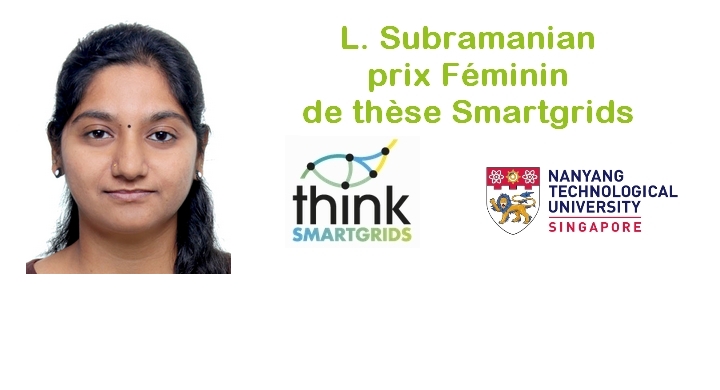Think Smartgrids 2022 Thesis Award, Women's category
Each year, the Think Smartgrids Scientific Council rewards the most outstanding theses on smart grids. At its annual ceremony on 13 January, Think Smartgrids awarded the Smart Grids Thesis Prize to four young researchers.


